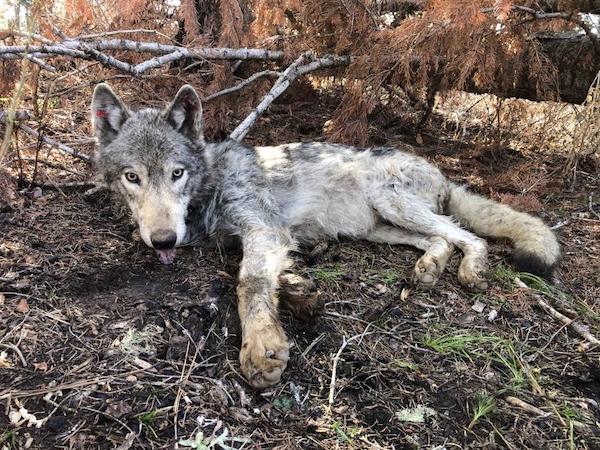
Orgs Withdraw Washington Wolf Petition – To File Again Next Week
Another petition that would have more tightly shackled Washington wolf management has been withdrawn – if only temporarily.

The Fish and Wildlife Commission had been scheduled to make a decision Friday afternoon on the July 18 petition from 10 pro-wolf organizations, but yesterday they abruptly withdrew the request to begin rulemaking around wolf livestock-conflict management, when lethal removals can occur and caught-in-the-act allowances, saying they will refile soon for a November decision.
“The proposed rule we will file next week will be substantially similar to the one we are withdrawing. We plan to revise the petition to incorporate some clarifications and additional facts and respond to feedback gained during our conversations with commissioners over the past two weeks. The Commission will then have until early November to vote on this revised petition, and we hope it will take this extra time to consider the important issues we have raised,” stated the groups stated in a brief letter Tuesday to the commission and WDFW.
The petitioners include Washington Wildlife First, Center for Biological Diversity, Western Watersheds Project, Coexisting with Cougars in Klickitat County, WildEarth Guardians, Cascadia Wildlands, Northwest Animal Rights Network, Center for a Humane Economy, Kettle Range Conservation Group and Endangered Species Coalition.
Essentially a continuation of a now-decade-long push using the petition process, state courts, court of public opinion and the Governor’s Office – all while Washington’s wolf population has grown by leaps and bounds, including in the federally delisted area, where lethal removals occur and the species is tribally hunted – this latest request would have bound WDFW and livestock producers to mandatory protocols around lethal removals, some of which are similar to current protocols but go much further.
For instance, requiring all depredations inside a 30-day window to be confirmed (currently, one can be probable) and have resulted in the deaths of at least two head; requiring ranchers to have used a minimum of two proactive deterrents; barring wolf removals on public land; limiting kill orders to 30 days and only affecting one wolf out of a pack; preventing removals near core wolf use areas and not if pups might be impacted; and requiring ranchers to have signed damage control prevention agreements before any wolves are killed on their behalf.
Before the petition was withdrawn, WDFW staff had recommended that the commission deny it, arguing that depredations and removals have “remained generally low” even as wolves expand their numbers and range across the state, and imposed regulations would “undermine” one-on-one agency-producer relationships, its preferred approach over codified rules.
The petitioners had also required that caught-in-the-act provisions only be allowed if a depredation has already occurred in the area and the livestock owner has a permit from WDFW’s director, but the agency was against that as well.
“This is an important rule that allows people to protect private property,” WDFW stated. “It has resulted in relatively few wolf deaths over a decade (fewer than one per year on average). WDFW staff have concerns that if the rule is made too restrictive and does not reasonably allow for killing a wolf attacking livestock, working dogs, or pets, these actions would not be reported to WDFW for fear of criminal enforcement, increasing undocumented wolf mortality and impeding WDFW from tracking mortality sources and trends.”
It’s speculation, but withdrawing the petition to “incorporate some clarifications and additional facts and respond to feedback gained during our conversations with commissioners over the past two weeks” suggests that proponents might feel they’re close to a majority vote of the nine-member citizen panel overseeing WDFW policy and just a little more wordsmithing will finally push them over the line they couldn’t cross last year, before new commissioners were added by Governor Inslee.
As it stands, Friday’s commission agenda still has three other petitions on the agenda – one asking to begin rulemaking for a 2024 spring black bear season, another to create a year-round cougar season and the third to use experienced predator callers and hunters for cougar removals.
WDFW is recommending all three be denied.
The commission will also mull buying a house, shop and 5 acres near Forks to house game wardens policing the West End.
“WDFW Enforcement has struggled for over a decade to retain officers in the Forks duty station. The isolation, overwhelming workload, lack of available housing, high cost of living, and limited employment for spouses/partners have led to high turnover in this important post. The local tribes, angling/conservation groups and fishing guide community have been vocal in demanding more Enforcement presence,” a staff memo states.
And there will be a workshop on the Southern Resident Orca Task Force’s recommendation to increase hatchery Chinook production to benefit starving killer whales, part of a series of briefings around the effort.
